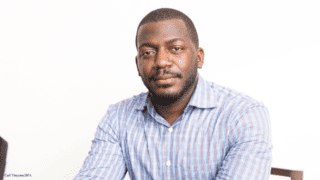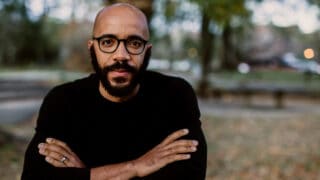The Lavin Agency Speakers Bureau
A speakers bureau that represents the best original thinkers,
writers, and doers for speaking engagements.
A speakers bureau that represents the best original thinkers,
writers, and doers for speaking engagements.
We live in a borderless world. Follow what you love—there is a world waiting for you out there.
Richard Heinzl is the founder of Doctors Without Borders, Canada: the Nobel Peace Prize-winning organization that inspired a movement among medical professionals to help the world’s most vulnerable populations. Today, he’s the CEO of My Next Health, where he’s spearheading developments in patient care through the power of generative AI. Modest and deeply passionate, Heinzl shares stories of ordinary people doing extraordinary things in the midst of war, famine and other challenges—and how technology like telemedicine is changing the face of healthcare around the globe.
In 1988, just out of medical school, Richard Heinzl founded the first North American chapter of Doctors Without Borders/Médecins Sans Frontières, the Nobel Peace Prize-winning humanitarian organization. Soon after, he became its very first field volunteer, spending an extraordinary year in remote Cambodia. His inspiring experiences there are movingly captured in his memoir, Cambodia Calling. Thousands of volunteers for DWB/MSF have since followed in his footsteps, bringing their healing skills to help many of the world’s most vulnerable people.
“If I can share one lesson with you, it would be to follow what you love. Any one of you can dream up a country you want to go to, or an idea that you want to make happen, or a program that you want to create … there is a world waiting for you.”— Richard Heinzl
Today, Heinzl is the CEO of My Next Health, a healthcare company advancing human health through genomics, generative AI, and quantum computing. By integrating AI with insights into the human genome, he’s revolutionizing clinical trials and patient care worldwide.
Heinzl also served as the Global Medical Director of the Harvard-affiliated WorldCare International: a leader in providing access to quality second opinions from physicians at some of the world’s top academic medical centers. Heinzl’s work at the world’s largest telemedicine company put him on the frontier of new healthcare technologies.
A renowned speaker, he shares his stories of ordinary people doing extraordinary things in the midst of war and other challenges. Heinzl has been awarded the Harvard T.H. Chan School of Public Health Alumni Award of Merit, and named one of Report on Business’s Top 40 Under 40 for his work.
New York Times bestselling author of Charged New York Times Magazine staff writer Political Gabfest co-host

Author of The State Must Provide: The Definitive History of Racial Inequality in American Higher Education Staff Writer at The Atlantic

#1 New York Times Bestselling Author of How the Word Is Passed and Above Ground Atlantic Staff Writer

Author of Grit, the #1 New York Times Bestseller | Pioneering Researcher on Grit, Perseverance, and the Science of Success

Pulitzer Prize-Winning Creator of The 1619 Project | Executive Producer of the Emmy Award-Winning 1619 Project Hulu Docuseries | MacArthur Genius
Nike's Former Chief Marketing Officer | Author of Emotion by Design

New York Times Bestselling Author Of All Boys Aren’t Blue and We Are Not Broken | Emmy Nominee | LGBTQIA+ Activist
CEO of The Atlantic | Former Editor-in-Chief of WIRED

Just over 30 years ago, Richard Heinzl founded the Canadian chapter of Doctors Without Borders, and took off around the world: working in remote locations far from modern resources. There, he and his colleagues would dream of what technology would one day do for medicine. And as cell phones and the Internet spread throughout the developing world—meaning images could be sent and received from anywhere, anytime—he began to watch those dreams become reality. He saw first-hand how telemedicine would spark a dramatic transformation in health care: geography, once the great barrier to quality treatment, would soon be overcome by innovation.
Today, the borderless revolution continues. In this exciting keynote, Heinzl describes how groundbreaking work with data, artificial intelligence, robotics, nanotech, genomics, and cloud computing means that not only is the world smaller and more efficient than ever before, but entrepreneurs can pick and choose from a host of innovations to create unprecedented healthcare technologies. Heinzl tells stories from the world’s most vulnerable places to reveal the humanitarian impact of cutting-edge science, drawn from his years of work abroad and with leading tech companies. And he explains how many technological advancements can also originate from emerging markets—meaning science and technology can (and will) flow from the places they’re most needed.
Filled with emotional and inspiring stories, coupled with an insatiable curiosity about the furthest possibilities of tech, Heinzl expands upon our ongoing search for better medicine and toasts the changing face of human health.

Richard Heinzl crafts a unique message for each group he speaks with. With perspective and humility, he shares lessons from his experiences at the far corners of the world: major moments, like working through a humanitarian crisis during the Iraq War, or witnessing South Africa’s first democratic elections. He also captures the quieter, no less wondrous, moments. Like seeing how a simple Frisbee, given to a group of kids at the frontlines, can bring joy half the world away. Or how, in most places he went, the Internet had beat him there, shrinking the globe. (Still, in other places, the Internet was absent—developing in him a visceral need for something like it to come along.)
Heinzl takes us past the expected sphere of humanitarian aid stories to reveal a remarkable world with universal lessons and incredible human stories (beginning with the story of how his experiences changed his life). Zooming out, he points to the exponential change in our borderless world. Why, for instance, it is more important than ever for individuals and organizations to have a non-conventional approach to problem solving. We need to embrace this change, he says, and to see what is truly valuable in our world—and how we are all connected in it.